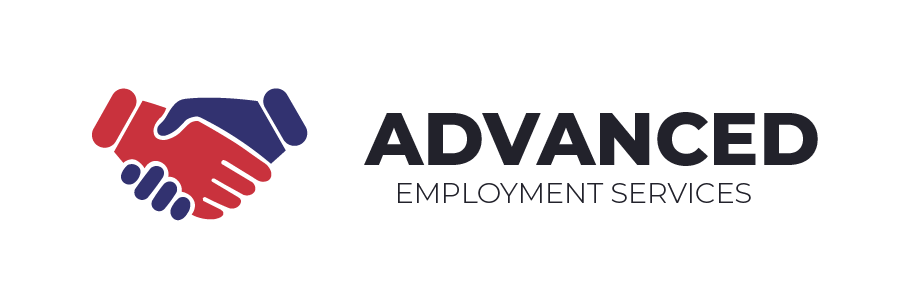Table of Contents
When you’re on the journey to securing a new job, one of the key elements that can make or break your application is your job references. These individuals, who vouch for your professional abilities and character, play a crucial role in the hiring process. But how do you ask for one? What are they, and why do you need them? In this guide, we’ll delve into these questions and provide a step-by-step approach to help you secure the right references for your career advancement. This article is brought to you by Advanced Employment Services, where we help you navigate your job search with confidence.
What Are Job References?
Job references are individuals who can provide firsthand insight into your work ethic, skills, and professional behavior. These people are typically former supervisors, colleagues, clients, or even professors who have observed your work and can speak to your abilities and character. Employers ask for references to verify the information on your resume and to get an outside perspective on what it’s like to work with you.
References can fall into two categories:
- Professional: These are individuals you’ve worked with in a professional setting. They might include former bosses, co-workers, clients, or business partners. Professional references are usually the most impactful because they can directly attest to your skills and job performance.
- Personal: Also known as character references, these people know you personally but not necessarily in a work context. They could be mentors, teachers, or community leaders who can vouch for your integrity, work ethic, and personality. While less common, personal references may be requested, especially if you have limited work experience.

Why Do I Need a Reference?
When you apply for a job, especially in competitive fields, your qualifications and experience on paper may not be enough to secure the position. Employers use references to verify the claims made in your resume and during interviews. Here are a few reasons why job references are so important:
- Verification of Skills and Experience: It confirms the accuracy of your job history, the roles you’ve held, and the skills you’ve listed. This verification process helps employers trust the information you’ve provided.
- Insight into Work Ethic and Attitude: It provides employers with a sense of your work ethic, how you handle stress, and how you interact with others in the workplace. This insight can be crucial in determining if you’re a good fit for the company culture.
- Decision-Making Influence: Sometimes, your references can be the deciding factor between you and another equally qualified candidate. A glowing recommendation from a respected professional can tip the scales in your favor.
- Building Trust: Providing strong references builds trust with a potential employer. It shows that you have a history of positive work relationships and that you’re confident in the endorsements of those who’ve worked with you.
Why do I need a reference? The answer is clear: they can be a pivotal factor in advancing your career.

How to Ask for a Reference
Asking someone to be your reference can feel daunting, but with the right approach, you can secure strong endorsements that will enhance your job application. Here’s a step-by-step guide to help you through the process:
1. Choose the Right People
Not everyone in your professional circle is a suitable reference. Here’s how to select the right individuals:
- Professional Connection: Choose someone who has seen you in action at work, such as a former supervisor, manager, or colleague.
- Positive Relationship: Ensure that you have a positive working relationship with the person. They should genuinely want to help you succeed.
- Relevant Experience: If possible, select someone with experience or a background related to the job you’re applying for. Their endorsement will carry more weight.
2. Ask for Permission First
Never list someone without asking them first. Not only is it courteous, but it also ensures they are prepared and willing to speak on your behalf.
- Reach Out in Advance: Contact your potential references well before you need them. Give them time to consider your request and prepare.
- Be Clear and Specific: When you ask, explain the context—what job you’re applying for, why you think they’d be a good reference, and what aspects of your work they might be asked about.
- Respect Their Decision: If someone declines your request, thank them and move on. They may not feel they can provide the strong endorsement you need, which is in your best interest.
Example Script:
Hi [Name], I hope you’re doing well. I’m in the process of applying for a new position at [Company], and I’m wondering if you’d be willing to serve as a reference for me. I believe your experience working with me at [Previous Company] would be highly relevant. I’d be happy to provide more details if needed. Thank you for considering my request!
3. Provide Necessary Information
Make it as easy as possible for them to speak on your behalf by providing them with the necessary information:
- Resume and Job Description: Share your current resume and the job description of the position you’re applying for. This helps them tailor their comments to match the job requirements.
- Key Points to Highlight: Let them know which skills or experiences you’d like them to emphasize. This doesn’t mean telling them what to say, but guiding them to areas that will be most beneficial.
- Deadline and Contact Information: Let them know they might be contacted and provide the best way for the employer to reach them.
4. Express Gratitude
Once they have agreed to help, make sure to thank them. Their willingness to vouch for you is a significant favor, and a little gratitude goes a long way.
- Send a Thank-You Note: After your reference has been contacted, follow up with a thank-you note or email. Acknowledge their effort and time in helping you advance in your career.
Example Script:
Thank you so much for agreeing to be a reference for me, [Name]. I truly appreciate your support in helping me with this opportunity at [Company]. I’ll keep you updated on the progress and let you know if there’s anything else you might need. Thanks again!
5. Keep Your References Updated
Stay in touch throughout your job search. Let them know if you were successful in securing a job, and keep them updated on your career progress.
- Share the Outcome: Whether you get the job or not, let them know the outcome. It helps them feel involved in your career journey.
- Maintain the Relationship: Don’t just contact them when you need something. Keeping in touch with your references regularly can strengthen your professional network.
Final Thoughts
Securing the right job references is an essential part of the job application process. These individuals can significantly influence your chances of landing the job by validating your skills, experience, and character. By carefully selecting your references, asking them properly, and maintaining a good relationship with them, you can ensure that your application stands out for all the right reasons.
At Advanced Employment Services, we understand the intricacies of the job application process. Our team is here to support you every step of the way, from resume building to securing strong job references. Remember, a great reference can be the key to unlocking your next career opportunity. So, take the time to nurture these relationships—they could be your ticket to success.
Good luck with your job search, and remember that Advanced Employment Services is here to help you achieve your career goals.



